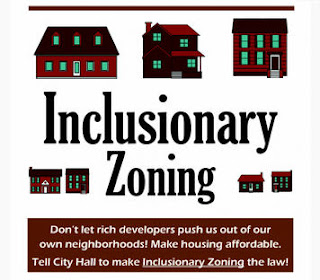In this space over the last 3 ½
years, we’ve acknowledged drawing on books we’ve read for ideas on matters we
see as worth writing
about. We’ve pointed readers to books (The Half Has Never Been Told, The Color of
Law, and The Warmth of Other Suns)
we regard as essential for understanding race in America. We reviewed one of
them (The
Color of Law) in explaining America’s
chronic housing discrimination problem. And, we drew on Madeline Albright’s
Fascism: A Warning,
in sounding the alarm about President
Donald Trump’s dangerous
affinity for dictators.
Reading books defines each of our
lives, beyond the utility of their content. We find
solace in the books strewn
around our homes and offices and packed onto our shelves. None of us can
contemplate a life without books. But, what do we read and why? With each of
us, there’s a story offering insight into who we are and how we’ve
evolved.
Henry: Diversity,
Diversity, Diversity
Many books I’ve read have taken me
places I
couldn’t have imagined and offered context for the jumbled exploration
of my own thoughts. From my earliest years, reading provided a spiritual experience in which I could
join others in exploring humanity and personal relationships. Even in
childhood, I read many
different things in many different areas. I still do: science
fiction like Isaac
Asimov’s The Foundation Trilogy and Parable of
the Sower by Octavia Butler; physics,
like The Great Unknown by Marcus Du Sautoy
and Alan Lightman’s Einstein’s Dreams; religion,
including The
Bible and A
History of God by Karen Armstrong;
fiction,including mysteries like Walter
Mosley’s Down the River Unto the Sea
and classics like Ralph
Ellison’s Invisible Man, John
Updike’s Rabbit Run, and The Alexandria Quartet by Lawrence Durrell.
In keeping current on events of the day (and in step with my co-authors) I read
Between
the World and Me by Ta-Nehisi Coates.
Each of these works, and many others
I’ve read, remain part of my fabric. This approach
has a drawback. Sometimes,
when I go into a bookstore, I find myself happy and sad at the same time –
happy because I’m amidst so much knowledge I’d hope I can absorb and sad
because I can’t read it all.
Rob: A Change is Gonna
Come
If 25 years ago I’d been asked for an
explanation of what I read and why, the answer would have been quite different
than what I offer today. Before the late ‘90s, with the exception of trashy
“airport
novels” I occupied myself with on cross country flights, I read nonfiction. My bookshelf
included volumes on elections (Theodore
H. White’s The Making of the President
series), analyses of World War II
(Richard
Overy’s Why the Allies Won), political memoirs (Robert McNamara’s In Retrospect), and biographies of major
historical figures (Robert
Caro’s The Years of Lyndon Johnson series).
These books brought me considerable knowledge about a
few subjects and I thoroughly enjoyed reading them. But, as I see now, I was
missing something. A change was coming.
In 1999, a friend invited my wife and me into a couples book
club. Under its rules, each
person took a turn at picking the book for
quarterly dinner meetings. Book club membership changed my reading habits (and
my life). During the ensuing 21 years, we’ve read 90 books, about half fiction.
I found myself reading, and enjoying, A Confederacy of
Dunces, John K. Toole’s wonderful, Pulitzer
Prize winning novel set in
New Orleans, where I once lived, and Stephen
King’s 11/22/63, a time travel novel that presented an entirely
different perspective on the JFK
assassination.
My book club experience confirmed the
wisdom in the old adage some writers live by: if you want facts, write
nonfiction. If you want truth, write fiction. l took that to heart. My
book
club experience in hand, and after my wife’s death, I decided I’d try my hand at writing fiction. I began grabbing more and
more novels. I still read lots of nonfiction, but I’m now a confirmed,
dedicated fiction reader too.
Woodson: Choices and
Goals
My book choices are influenced largely by my
life choices and goals. With fewer days left to live than I’ve already lived
and with goals remaining, I concentrate my reading on what furthers achievement
of my goals.
Because I am a property manager and real estate investor, I
read a lot on real
estate and economic matters (books like Capital
in the Twenty-First Century by Thomas Piketty, Chris Hogan’s Everyday Millionaires, Joseph
Stiglitz’s People, Power, and
Profits: Progressive Capitalism for an Age
of Discontent, and Property Management Kit for Dummies by Robert
Griswold). My interest in political
and racial issues is satisfied by reading books like Doris Kearns Goodwin’s
masterful Team of Rivals and the
critically important That Used to be Us: How
America Fell Behind in the World and How We Can Comeback by Tom Friedman and Michael Mandelbaum, Dying
of Whiteness by Jonathan Meltz, and
Bryan Stevenson’s Just
Mercy: A Story of Justice and Redemption. Finally, because I participate in several Christian
ministries, I read books
on religion, including Systematic
Theology by Wayne Grudem, Instinct:
The Power to Unleash Your Inborn Drive by T.D.
Jakes, Eckhart
Tolle’s A New Earth Awakening to Your
Life’s Purpose, and The Seat of the Soul by Gary
Zukav. Then there’s the Holy
Bible. I read that too.
As with Henry and Rob, my reading
focus developed over time. It reflects life choices
I’ve made because of my evolution as a person and as a professional, and through
recognizing the limitations we all face as humans. Reading remains an essential
part of my life.



























